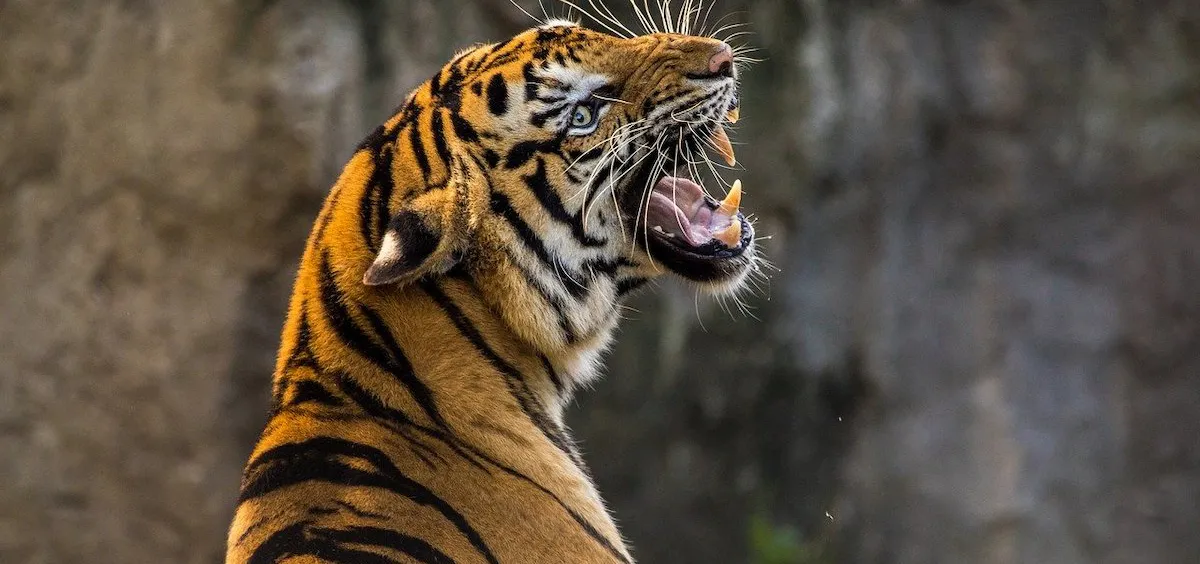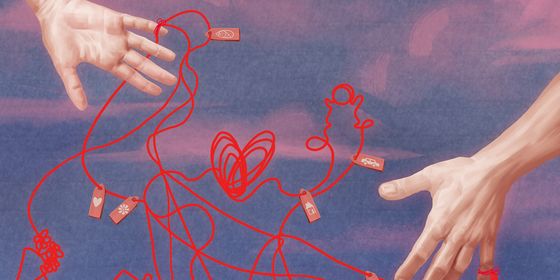Ancient sayings about fearsome tigers
A decade ago, a consortium of world leaders and activists founded International Tiger Day with the alarming news that 97 percent of the world’s wild tigers had disappeared in the last century. Observed on July 29 each year, this celebration of big cats raises awareness to the poaching, habitat loss, and climate change factors that led to their decline.
China is no exception to these efforts, as one of its own indigenous tiger species, the South China Tiger, is thought to have been extinct in the wild since the 1970s (the country is also home to the endangered Bengal and Siberian tigers). This was very much not the case in ancient history, though, judging from the plethora of folk tales and legends that feature the striped beast, such as “Wu Song Fights a Tiger” from Outlaws of the Marsh (《水浒传》) and “Ma Zheng” from Pei Xing’s Tales of the Marvelous (《传奇》). In these tales, the ferocious feline appears as worthy foes, shapeshifting demons, and an ever-present danger to farmers living on the margin of the wilderness.
Equal parts reverence and fear, ancient Chinese attitudes toward tigers have been encapsulated in many classic idioms with amusing origin stories and useful applications:
卧虎藏龙 Crouching tiger, hidden dragon
This saying, which refers to talent that is hidden, is best known to Hollywood audiences for giving name to Ang Lee’s 2000 film. The movie’s epic wuxia world is full of characters who are not what they seem, revealing impressive cunning and fighting abilities as the plot unfolds.
The full saying is a line by poet Yu Xin (庾信) from the sixth century, “The dark stone looks as though a tiger is crouched behind it/ The tree root seems as though it conceals a dragon (暗石疑藏虎,盘根似卧龙).” But rather than undiscovered genius, the original quote simply describes a scenic—albeit treacherous—spot at which the poet meets a friend.
他看似貌不惊人,却是企业里卧虎藏龙的精英。
Tā kànsì mào bù jīngrén, què shì qǐyè li wòhǔ-cánglóng de jīngyīng.
He may not look like much, but is the true genius within the corporation.
龙腾虎跃 Leaping dragon, jumping tiger
Dragons and tigers, both powerful and majestic animals, make a ferocious pair in many Chinese chengyu. This one describes an action that is forceful and full of vitality.
运动员个个龙腾虎跃,打了一场精彩的比赛。
Yùndòngyuán gègè lóngténg-hǔyuè, dǎle yì chǎng jīngcǎi de bǐsài.
The athletes leapt about, playing an exciting match.
虎头蛇尾 Head of a tiger and tail of a snake
While dragons are a good match for tigers in terms of strength, snakes are a less apt pairing. This idiom describes an action or initiative that starts with a bang, but goes out with a whimper.
做任何事都要认真,决不能虎头蛇尾。
Zuò rènhé shì dōu yào rènzhēn, jué bù néng hǔtóu-shéwěi.
Performing a task requires a serious attitude; you can’t abandon it halfway through.
照猫画虎 Draw a tiger modeled on a cat
This picturesque chengyu allegedly comes from the story of a painter who left behind an unfinished portrait of a tiger when he died. On his deathbed, he made his disciple promise to finish the painting. The disciple faithfully went up the mountain every day, but didn’t find any tigers to draw, so he decided to use a cat as his model instead. The resulting portrait was almost, but not quite, like a tiger, so the disciple became the laughingstock of the town. Today, the chengyu refers to shallow imitation without real understanding.
写作文要有自己的想法,不能照猫画虎抄别人的。
Xiě zuòwén yào yǒu zìjǐ de xiǎngfǎ, bù néng zhàomāo-huàhǔ cháo biérén de.
You must present your own thoughts in your essay, not simply copy others.
狐假虎威 A fox assumes the might of a tiger; putting on airs
Like snakes, foxes are not terribly impressive animals. The fable behind this chengyu was recorded in the history text Strategies of the Warring States (《战国策》). In it, King Xuan of the Chu state is baffled about why his chancellor, Zhao Xixu, is feared all across the northern kingdoms, so a courtier explains: One day, a tiger goes out hunting and comes across a fox. Knowing it was about to be eaten, the desperate fox boasts to the tiger that he is the king of the forest, and that all the other animals are afraid to come near him. As proof, he invites the gullible tiger to take a walk with him through the forest; indeed, the other animals scatter when they see the pair coming—because they are afraid of the tiger, not the fox.
The story was probably meant to flatter the king, but the idiom has gone on to describe a less powerful individual who associates themselves with a higher authority in order to exploit or bully others:
他是村长的女婿,经常狐假虎威地欺负别人。
Tā shì cūnzhǎng de nǚxu, jīngcháng hújiǎhǔwēi de qīfu biérén.
He is the son-in-law of the village chief, and often uses his status to bully others.
为虎作伥 Playing chang to the tiger; assisting evil
In Chinese folklore, a 伥 (chāng) is the ghost of a person who has been devoured by a tiger. Once eaten, these spirits will forget their humanity and lure more victims to the tiger, as described in the story of “Ma Zheng.” The idiom thus describes someone who assists an evildoer, often their own enemy:
她给假货做广告,简直是为虎作伥!
Tā gěi jiǎhuò zuò guǎnggào, jiǎnzhí shì wèihǔ-zuòchāng!
She is assisting wrongdoers by making ads for counterfeit products.
三人成虎 Three people to make a tiger
This idiom, meaning “A rumor repeated by many people becomes a fact,” comes from either the Strategies of the Warring States or the legalist text Han Feizi (《韩非子》), which both record the same story: Pang Cong, a chancellor of the state of Wei, was assigned to escort the Prince of Wei to become a hostage of the state of Zhao. Before his departure, Pang asked the King of Wei, “If a person said they saw a tiger in the market, would your Majesty believe it?”
The king said no, so Pang asked, “What if a second person said they saw the tiger?”
The king replied, “I would still find it suspect.”
Pang asked, “What if a third person said so?”
The king exclaimed, “Then it’s definitely true!”
Pang then told the king, “It’s extremely unlikely that a tiger would appear in the market, but once three people say it’s true, people start to believe it. Yet the distance from the Zhao capital to the Wei capital is far greater than that from the market to your palace, and there may be more than three people who will try to slander me. I beg your Majesty to treat what you hear prudently.” The king assured Pang he had nothing to worry about, but after his departure, people began to spread rumors about Pang to the king. At first, the king was skeptical, but after multiple people brought the same tale, the king started to believe it, and banished Pang from the court.
网上常常三人成虎乱制造假新闻,不要随意转发。
Wǎngshang chángcháng sānrén-chénghǔ luàn zhìzào jiǎ xīnwén, bú yào suíyì zhuǎnfā.
Fake news often spreads on the internet; don’t thoughtlessly forward it.
马马虎虎 “Horse horse tiger tiger”; so-so; doing something carelessly
This hard-to-translate phrase is said to comes from the story of a slapdash painter who drew a picture that could be either a tiger or a horse, but didn’t look much like either. Becase of this painting, his eldest son one day mistook a neighbor’s horse for a tiger, and shot and killed it, forcing his father to pay damages. Later, his second son mistook a tiger for a horse, tried to ride it, and was eaten. The heartbroken painter burned his painting, and learned the lesson of being meticulous with the details:
学乐器要坚持不断地练习,马马虎虎是不会达到目的的。
Xué yuèqì yào jiānchí bú duàn de liànxí, mǎmǎhūhū shì bú huì dádào mùdì de.
Learning an instrument requires continuous practice; you can’t reach your goals by phoning it in.
虎头虎脑 Tiger head and tiger brain; innocent
Not all chengyu about tigers are negative. This idiom describes people, usually young boys, who either look very bawny or very innocent.
这孩子虎头虎脑的,十分可爱!
Zhè háizi hǔtóu-hǔnǎo de, shífēn kě’ài!
This child looks so naive and cute!
Cover Image from Pixabay












